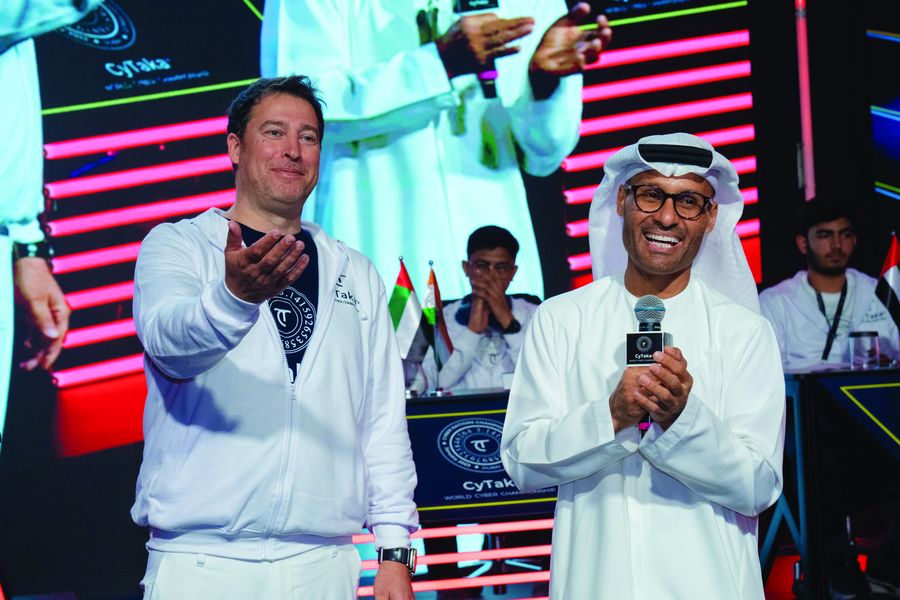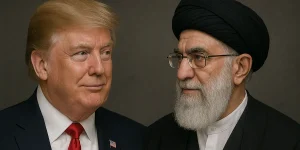ForbesPro
Anyone who happened to be in Dubai towards the end of January, must have rubbed their eyes in disbelief: 100 hackers from 24 countries, including countries that do not have diplomatic relations with Israel, gathered in one location for a cyber competition the likes of which have yet to be seen: Cyber Nations Championship.
“It was surreal,” says Doron Amir, founder of “The Best in Cyber” and CyTaka CEO. “Watching a Lebanese hacker working together with an Israeli one is an unusual sight. When the two introduce themselves to each other, a little smile might appear, but their roots or nationality aren’t mentioned. The discussion shifts immediately to professional matters related to the competition,” he explains. “I am not familiar with any other event where Israelis will meet Syrians, Iranians or Lebanese, and where they applaud each other and express their professional respect for one another. This just might have been the most surreal stage in the Middle East. But as I always say, it’s all about the people.”
Cyber Nations Championship, which was hosted recently in Dubai by CyTaka and in cooperation with the United Arab Emirates’ Cyber Security Council, drew cyber experts and leading hackers from around the world, including such countries as Malaysia, Lebanon, Syria, Pakistan, Dubai, Israel and the UAE. The participants tackled the most sophisticated cyber challenges in the world: cyberattacks on hospitals, and on banking and financial institutions, hacking autonomous vehicles, and attacking and protecting aviation.
“This is an historic event, the first of its kind. It is not merely another commercial collaboration, but a special invitation by the Emirati government,” added Amir. And indeed, one of the most respected people in the field, Dr. Mohamed Al Kuwaiti, head of the UAE Cyber Security Council, honored the event with his presence. “This competition reflects the shared interests of our two countries,” he said. “Two years ago, events like this were not possible. Today we are working together on our shared goal to protect against cyberattacks. We need to develop these skills, and we need more cyber professionals.”
“I am not familiar with any other event where Israelis will meet Syrians, Iranians or Lebanese, and where they applaud each other and express their professional respect for one another. This just might have been the most surreal stage in the Middle East. But as I always say, it’s all about the people.”
At the end of the championship, the importance attached to the event was indicated in a spectacular audiovisual presentation, in which CyTaka’s logo and the Emirati Cyber Security Council’s logo were projected on the tallest building in the world, the Burj Khalifa.
Positive Civilian Cyber
Participants in the first rounds of the championship competed through CyTaka’s mobile app, and the winners of the preliminary stages were flown to Dubai for the championship. The event was also attended by senior officials from Israel’s security and cyber establishments, including from the Mossad, Israel Security Agency, the National Cyber Directorate and Interpol, as well as by diplomats and embassy staff.
“We are garnering the broad support of security organizations around the world,” says Amir. “Interpol, Mossad, ISA and others. They are familiar with relevant regulation, and they know how to make this professional world more accessible to regular citizens and how to strengthen civilian cyber.”
According to Amir, CyTaka is promoting “positive cyber” in the world as an agenda involving the rights to know. “The public must be fully informed of the cyber dangers of the products it uses, and decide how to use these products only after understanding all the risks. That is the flag raised by civilian cyber. Just like the internet reaches everywhere, our verticle, civilian cyber, will also reach every citizen and allow us all to live a life that is safer and more modern.”
Amir emphasizes that knowledge in the field should not be held exclusively in military special units, but rather reach every child. That is what CyTaka, which he leads, does. In the past year alone, the company initiated several events throughout the country: the Cyber Negev competition held in Sde Boker; the North of Israel Cyber Championship held in Kiryat Shmona; announcing the Israeli National Cyber Day in a special championship held in Kiryat Ata. Senior officials in the security establishment and leading figures in the Israeli cyber industry attended all of the events.

Amir stresses that on the other hand, negative cyber is unacceptable: “We weed out anyone who is active in the darknet. We remove people who use cyber for negative purposes, such as terrorism and crime, but we definitely enable hackers to change their path. We nurture hackers who want to make a change and use their cyber skills for the good.”
Perfect Synergy
Former head of the Israel National Cyber Directorate, Yigal Unna, explained at the event why Israel has become a cyber powerhouse. “Israel is constantly targeted in cyberattacks by countries and organizations,” he said. He added that cooperation is extremely important: “You can’t win in cyber on your own. Only through international cooperation on security, experience, technology and sharing information can we defeat the attackers. Only by developing advanced technological tools based on sharing and disseminating knowledge among global positive actors, can we continue to lead the ongoing war in the field of cyber.”
Major General (Res.) Danny Yatom, former Mossad chief, also spoke at the event and referred to partnerships: “Israel must be at the forefront of cyber defense technology. In a country that is often attacked by its enemies, a company like CyTaka, which brings a novel model in sharing knowledge and developing defense measures, will spearhead the next war in the cyber arena.”
Dr. Mohamed Al Kuwaiti, head of the UAE Cyber Security: “This competition reflects the shared interests of our two countries. Two years ago, events like this were not possible. Today we are working together on our shared goal to protect against cyberattacks.”
Amir adds that the collaboration with the Emirati government represents the realization of the Abraham Accords. It is a vote of confidence and reflects support in and a shared vision of positive cyber in the face of the threats in the field. Amir compares the peace deal with the UAE to making new friends: “Each side is bringing a bowl of fruit to their new neighbor,” he says. “Israel is good at cyber, and cyber is at the cutting edge of innovation. The UAE is a very advanced country, very innovative, one of the best in the Middle East. There are people there who have strong research capabilities, and it is a place where various fields coincide. The synergy between our nations is what creates quality outcomes.”
An abundance of Investors
During the championship, Amir makes the time to talk to us about hot current affairs. The man who has been crowned “Leader of the Cyber Nation,” speaks clearly, exudes authority and is very persuasive. When asked about whether he’s concerned that investors will pull out of Israel as a result of the legal revolution planned by the current government, he shares from his own experience.
“As the owner of a hi-tech business, and as someone who has made history through the World Cyber Championship and the historic collaboration with the UAE, I have earned the right to bang on the table,” he says. “Contrary to the general sense, I am actually not feeling that they are leaving. My sense is there’s an abundance of investors. They can identify financial attractiveness, and that is what they look for. The gravitation in this field is not based on feelings, but is the result of a simple analysis: is this something lucrative? As someone who has developed security products, I can testify to how well the investors understand the smart economic model.”

“But I do have criticism of hi-tech companies,” he says angrily. “They recruited heavily, prepared themselves for tough times, and now they’re firing workers. It is thanks to these dedicated employees that the companies received financial assistance as part of the five-year plan, and now they’re telling these people to go home.” By the same token, he also has a message to hi-tech workers: “Don’t ask for unreasonable wages that you don’t deserve. Cyber experts should be paid well, but the salaries should be determined according to skill and achievements, and not be used as a means for a fresh recruit to extort their employer.”
Defense, Not Only Offense
Back at the championship, hackers are overcoming a variety of challenges. Meanwhile, Amir tells us about an add-on that CyTaka has implemented, which aims to assess the competitors’ skills. “Our experience showed us that every parameter must be measured. We created a robot that automatically simulates attacks and defenses. Besides cracking the challenges, the attacker’s computer freezes suddenly and they must cope with that too. The AI mechanism that we built, CyTaka AI, will guarantee that the world cyber champion knows how to conduct research and analyses and not only how to attack.”

And there are prizes: the first prize, $100,000, went to Sam Lee, a Malaysian living in New York, where he works as a security engineer for Amazon; the winner of the second prize, $10,000, was Sachin Kamath from India; and the third prize, $5,000, went to Abdulwahab Al Gamhi from the UAE. Amir adds: “The countries of the winners and participants speak for themselves. They reinforce our motto ‘It doesn’t matter where you’re from—but how much you contribute to positive cyber,’ and prove that our platform is global and crosses nations and political differences. When you take the disagreements out of the equation, cooperation becomes faster and advances humanity to a safer place.”
The top ten finalists have guaranteed their places in the CyTaka World Cyber Championship finals, which will be held in March during the annual cyber exhibition GISEC Global in Dubai. The World Cyber Champion will be announced, and they will win the one-million-dollar prize.
ForbesPro is Forbes’s Promotional Content Brand





